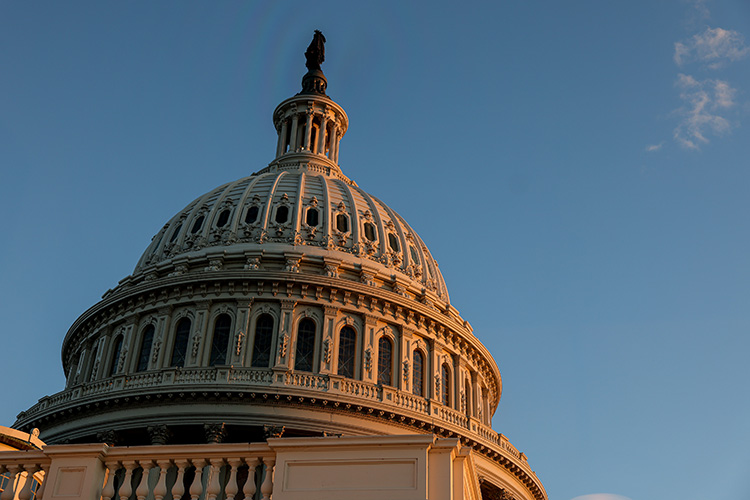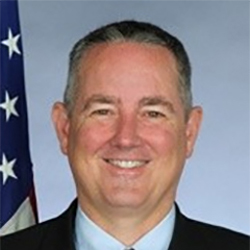Analyses / Political and Geostrategic Observatory of the United States
10 October 2025
Human Rights in the United States: What If Washington Were the Subject of Its Own Report?

Each year, the US Department of State publishes a comprehensive report on the global state of human rights. This document, entitled Country Reports on Human Rights Practices, focuses primarily on governmental action but also covers a broad range of societal and political factors. Mandated by Congress, it has long been regarded as a reliable and exhaustive reference. It covers every country in the world. Every one—except the United States.
Over the course of my thirty-year diplomatic career, I was often tasked with drafting or reviewing chapters of this report. In Côte d’Ivoire and Pakistan, I personally oversaw its preparation. At other times—particularly when I headed a regional division within the State Department’s Bureau of Human Rights—I reviewed and refined several national reports. The process of gathering information was intensive and lasted the entire year. The data came from NGOs, civil society representatives, political parties, trade unions, journalists, and government authorities themselves. Editing the text required meticulous verification: every finding had to be corroborated and confirmed. Publication of the report was often a delicate moment for our embassies: our analyses did not mince words, and the governments concerned rarely received such documented criticism with equanimity.
Recently, I engaged in a small thought experiment. In this particularly tense period of American political history, I asked myself: what would a human rights report look like if the United States were the subject of its own chapter? To be honest, my intention was not to paint a bleak picture, but rather to reassure myself. I imagined that, according to objective and standardised criteria, the human rights situation in the United States would probably appear less troubling than the current media polarisation suggests. “After all, the US government doesn’t make its citizens disappear in the middle of the night,” I told myself.
Alas, the mental draft of this hypothetical report proved disappointing. The new Trump administration released its first human rights report late, in August 2025, and removed several longstanding categories. Unsurprisingly, the Trump State Department no longer considers violence linked to sexual orientation a matter of fundamental rights. Even limiting myself to these new “simplified” categories, none produced reassuring results. And if one applies the traditional criteria, as I do below, the picture is even more concerning.
- Respect for the integrity of the person
This section includes unlawful killings, torture, arbitrary detention, denial of fair trial, political prisoners, and so on. Our judicial system and commitment to the rule of law have never been perfect, but I believed this was an area in which the United States would still stand out positively. Yet, in light of recent events, I have identified several troubling issues I would not have hesitated to denounce had I been drafting a report on the early months of the current administration. Extrajudicial executions? US military operations targeting “narco-terrorists” off the coast of Venezuela—without congressional authorisation or any adherence to due process—could easily fall into this category. Unlawful detentions? Arrests by Immigration and Customs Enforcement (ICE) of US citizens or lawful residents, often based solely on appearance or language spoken, would deserve mention. Denial of fair trial? The investigations launched against political opponents of the president, including the unfounded indictment of former FBI Director James Comey, would rightly be classified under this heading.
- Respect for civil liberties
This section encompasses freedom of expression, peaceful assembly, and religion. Here again, recent months have seen serious infringements. The Trump administration tolerates poorly any discourse contrary to the MAGA ideology, whether in universities or on television. The threats made by Attorney General Pam Bondi to “prosecute” those engaging in “hate speech” following the assassination of Charlie Kirk are illustrative.[1] Regarding freedom of assembly, the president described protesters in Los Angeles who opposed his immigration policy as “animals” and “foreign enemies” before deploying the California National Guard and the Marines to restore order. While some vandalism did occur, such use of military force in response to civil unrest departs from democratic norms. As for freedom of religion, government policy has clearly favoured the public expression of Christianity. Trump frequently refers to the United States as a “Christian nation”, and his administration has authorised the display of religious symbols on federal property.
- Participation in the political process
This section concerns democratic governance and elections. The United States, of course, continues to hold competitive elections at all levels and remains a democracy. But here too, norms and conventions are eroding. The president vigorously sought to contest the legitimate results of the 2020 election, and violent demonstrators stormed the Capitol during the counting of Electoral College votes. Since his re-election, Trump has publicly floated the idea of a third term—unconstitutional, of course.
In recent months, both major parties have redrawn electoral districts to maximise their advantage in the midterm elections, sometimes in defiance of majority will. The “unitary executive theory” advanced by the Trump administration—according to which the president exercises absolute control over the executive branch—has reduced congressional authority by weakening its oversight powers and budgetary rights. Congress, though multi-partisan, thus sees its capacity to act as a counterweight to presidential power seriously diminished.
The list could go on, but the point is clear. The executive summary of this imaginary report on human rights in the United States would read as follows:
Respect for fundamental rights has declined on several fronts over the past year. While the United States remains, for the most part, a democratic country based on the rule of law and due process, its record under the Trump administration is mixed—and the trend, worrying.
[1] There is no provision under US law for the prosecution of “hate speech.” The First Amendment protects all forms of public expression.
Find regular editorials by Jeff Hawkins, former American diplomat and Associate Research Fellow at IRIS, in his Notes from a State Department Veteran.

